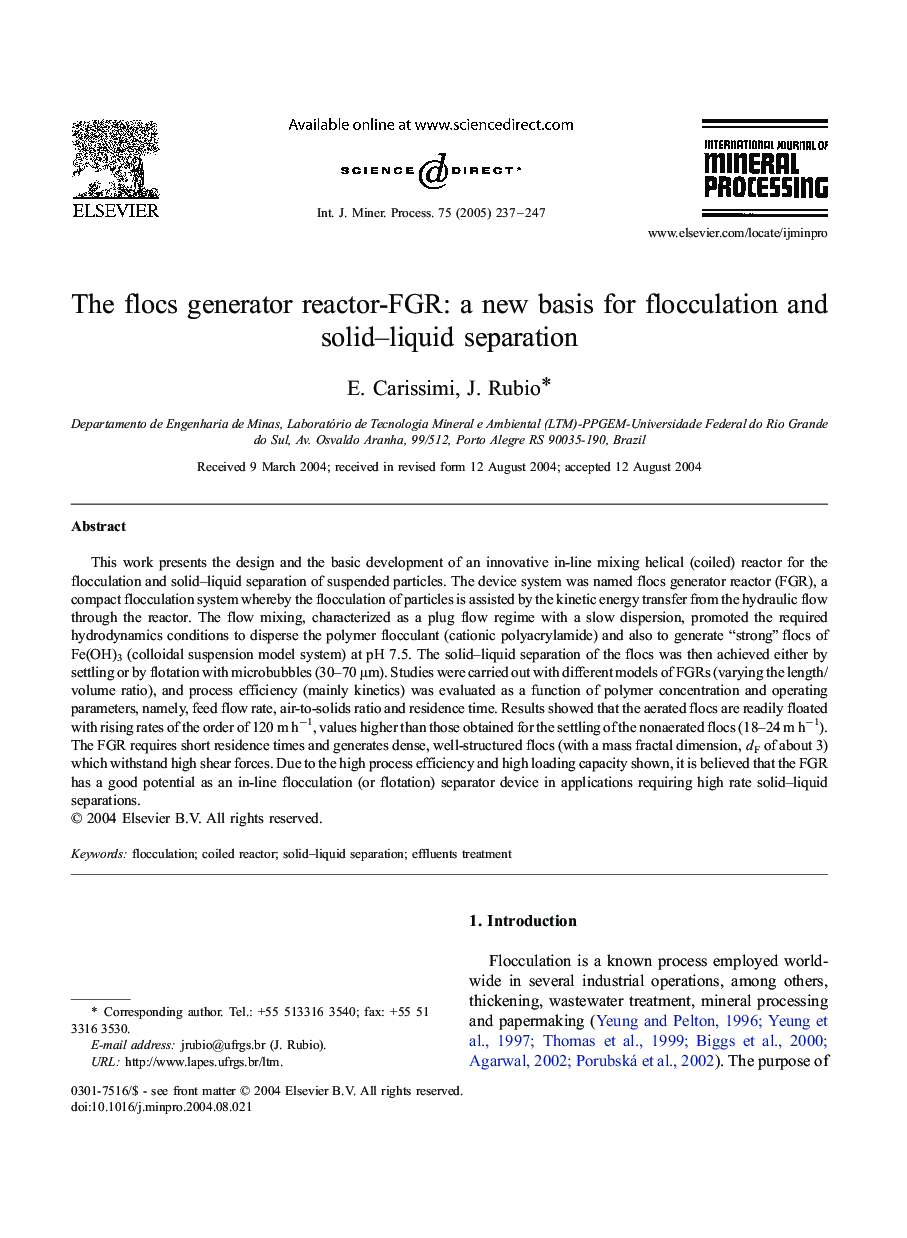| Article ID | Journal | Published Year | Pages | File Type |
|---|---|---|---|---|
| 9633066 | International Journal of Mineral Processing | 2005 | 11 Pages |
Abstract
This work presents the design and the basic development of an innovative in-line mixing helical (coiled) reactor for the flocculation and solid-liquid separation of suspended particles. The device system was named flocs generator reactor (FGR), a compact flocculation system whereby the flocculation of particles is assisted by the kinetic energy transfer from the hydraulic flow through the reactor. The flow mixing, characterized as a plug flow regime with a slow dispersion, promoted the required hydrodynamics conditions to disperse the polymer flocculant (cationic polyacrylamide) and also to generate “strong” flocs of Fe(OH)3 (colloidal suspension model system) at pH 7.5. The solid-liquid separation of the flocs was then achieved either by settling or by flotation with microbubbles (30-70 μm). Studies were carried out with different models of FGRs (varying the length/volume ratio), and process efficiency (mainly kinetics) was evaluated as a function of polymer concentration and operating parameters, namely, feed flow rate, air-to-solids ratio and residence time. Results showed that the aerated flocs are readily floated with rising rates of the order of 120 m hâ1, values higher than those obtained for the settling of the nonaerated flocs (18-24 m hâ1). The FGR requires short residence times and generates dense, well-structured flocs (with a mass fractal dimension, dF of about 3) which withstand high shear forces. Due to the high process efficiency and high loading capacity shown, it is believed that the FGR has a good potential as an in-line flocculation (or flotation) separator device in applications requiring high rate solid-liquid separations.
Keywords
Related Topics
Physical Sciences and Engineering
Chemical Engineering
Chemical Engineering (General)
Authors
E. Carissimi, J. Rubio,
